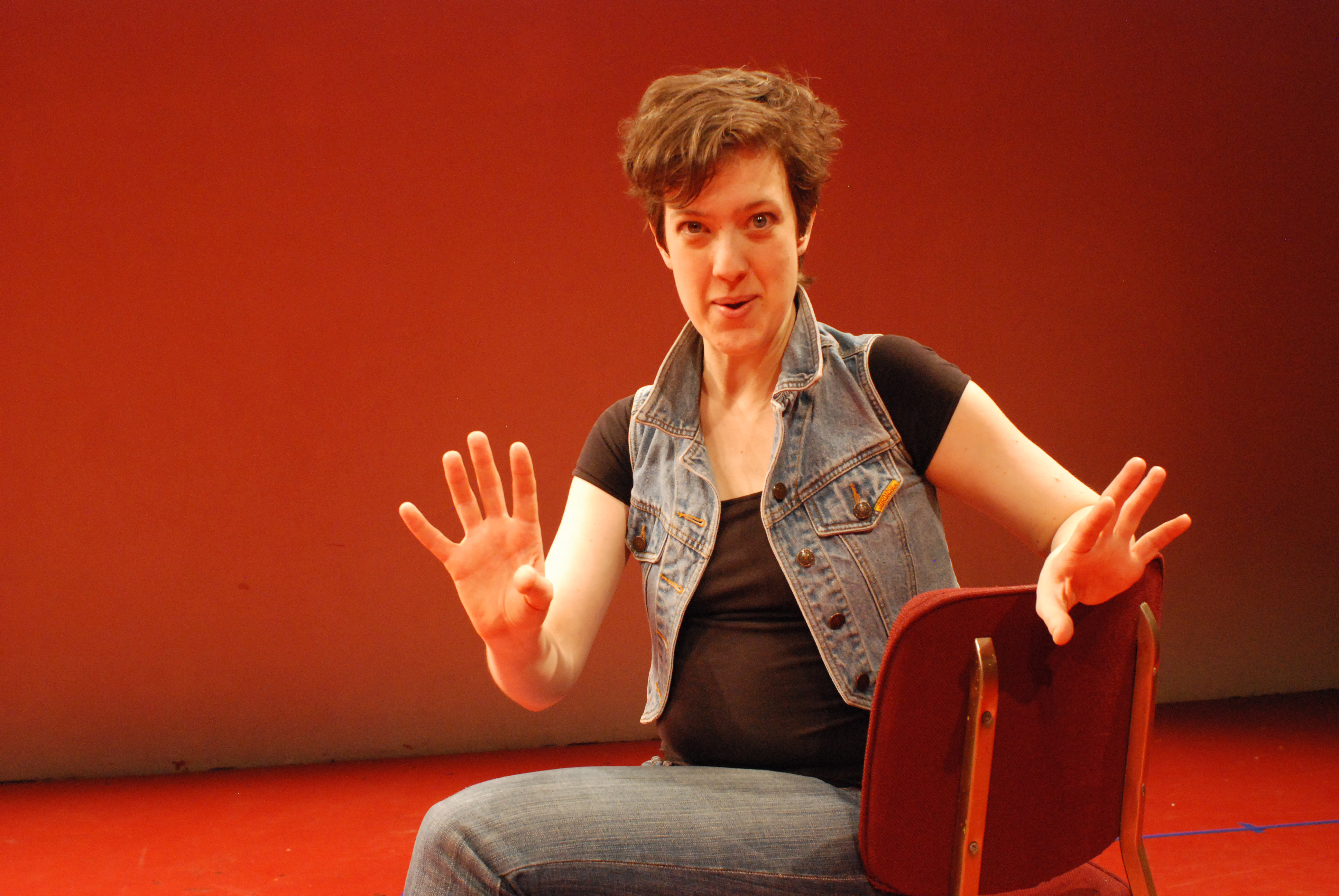 |
| A little "art" I created in a Naropa class last week: Anna Dickinson, the 19th century Quaker abolitionist and orator (and lesbian) observing 9-year-old (lesbian) me. |
I carried these brooding thoughts with me to a table at the Naropa Café, where my poet-friend Val was gesturing for me to join her. Val is much older than I am: short gray hair, life-worn, a poet shaman who wears bright scarves, believes her dreams, and talks openly of a difficult past she barely survived. We're connected because we're both writers and we're both lesbians.
"I can't shake this anger I'm feeling today," I told her. My bones felt heavy. I told Val what I'd been thinking about Brown and Abigail and celebrations, and she nodded, agreeing, but I caught the glint of loving amusement in her eyes. And suddenly, I heard how young I sounded. I came out as a lesbian at age 28, in 2005, after famous people like Ellen had begun to come out (1997), after the last sodomy law was overturned in Texas (2003), after Massachusetts legalized same-sex marriage (2004). I was born eight years after the Stonewall Riots (1969). And I didn't feel like celebrating? In the middle of my own sentence, I burst out laughing.
Val grinned. "The world is changing," she said. "It's our work to be midwives to all this change. We've got to celebrate. It's our work."
It's our work. I celebrated the rest of the day without hesitation, cheering with all the rest when Anne Waldeman introduced our Friday colloquium with a joyful fist in the air and a "How about that Supreme Court decision?" I checked Facebook more often than usual, and felt only glad to see all the rainbows. Meredith texted from the World Series of Poker in Vegas: "Because of the Supreme Court decision today, I've already won!" Determined to be a midwife for all this change, whenever it arrives, a friend and I toasted Justices Kennedy, Ginsburg, Sotomayor, Kagan and Breyer at dinner that night. What does anger accomplish? The change is happening. People who struggled with police at Stonewall never thought they'd see this day.
This morning, I sit outside on the front porch with my coffee, the sprinklers nourishing the new plants in our garden, and contemplate change in my own life. In four years, Mitike and I have moved three times: Juneau to Fort Collins, Fort Collins to Boulder, and now to Denver. Four years ago, Ali died. Only two years ago, I emerged from living all the time inside grief. And now, in this past year and a half, as if something in me was finally prepared to midwife good, life-giving change: I met Meredith, I got a few pieces published, I earned an MFA, I found a good high school English job, and I got engaged. When the assistant principal at South High asked me why I was moving to Denver, I told her I was moving in with my fiancé, and that she lives just a few miles from the school. It wasn't long ago that it was dangerous for a teacher to come out to an administrator. The assistant principal just smiled and said, "Congratulations! Will the kids have to get used to you having a new last name next year, then?"
This morning, I feel only joy. Yes, these changes that seem obvious take too long. Yes, we have a long way to go in this country to craft a safe and equal world for people of all races, backgrounds, sexual orientation, etc. But this morning, I'm watching the sun glint off the droplets of water on my new yarrow and coneflower plants. In a year, I'm hoping these plants fill this garden, but they're still new. They're waiting for the soil to be right for their roots, for the sun and rain to nourish them just enough. Then they'll grow tall and full. For now, I'll stand nearby and write, a midwife for all this good change.

.JPG)


